Peaches are rich in vitamins, antioxidants, and fiber that may help support digestion, heart health, skin vitality, and immune function. Understanding their nutritional value helps you enjoy this summer fruit as part of a balanced diet for long-term wellness. Below is a science-backed look at how peaches contribute to overall health and how to consume them safely and effectively.
What Are Peaches?
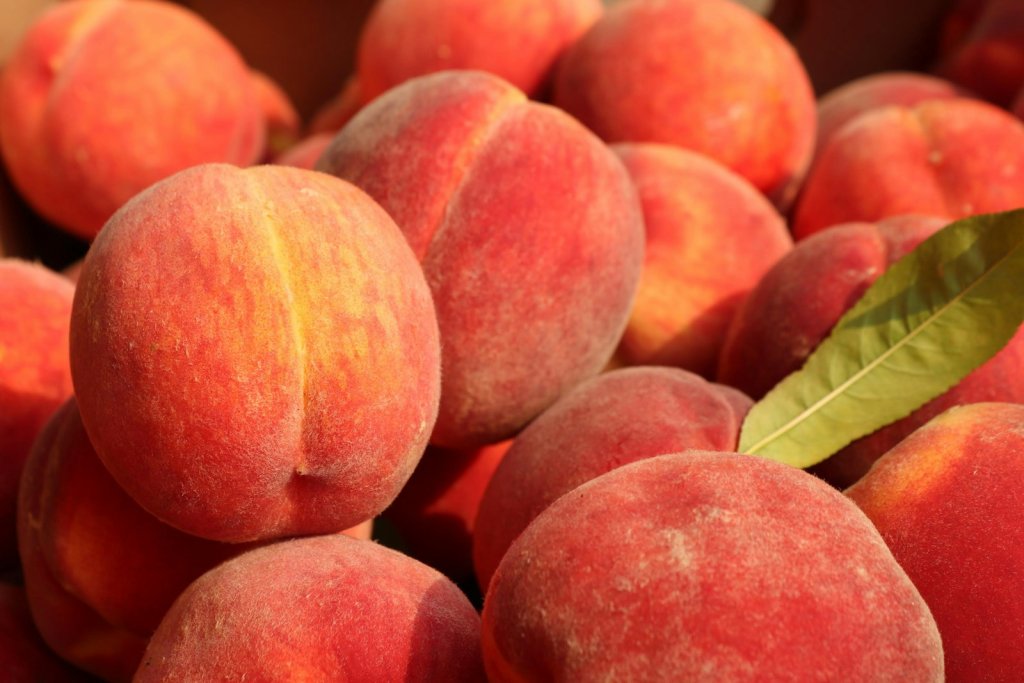
Peaches (Prunus persica) are juicy, aromatic fruits belonging to the Rosaceae family, closely related to plums, cherries, and apricots. Despite their Latin name “persica,” peaches actually originated in northwestern China, where they’ve been cultivated for more than 7,000 years. From there, they spread westward through Persia (modern-day Iran) to Europe and the Americas.
Today, peaches are grown globally in warm, temperate climates, especially in the United States (California, Georgia, South Carolina), Italy, Spain, and China — the world’s leading producer.
There are two main varieties:
- Yellow-fleshed peaches — slightly tangy and rich in beta-carotene.
- White-fleshed peaches — sweeter and lower in acidity.
Peaches are prized not only for their delicate flavor but also for their nutrient-dense composition. They are naturally low in calories and rich in vitamins, fiber, and antioxidants, making them an excellent addition to a balanced diet that supports digestive, heart, and skin health.
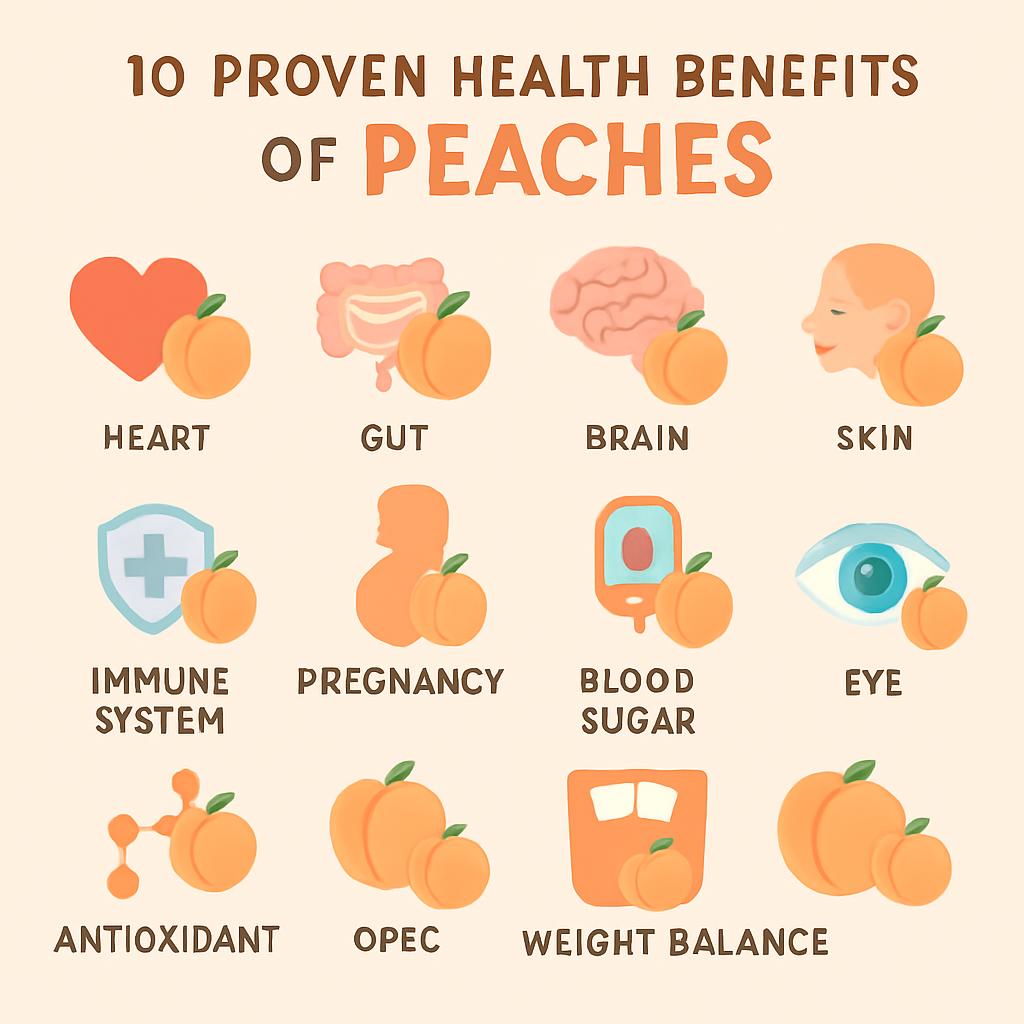
Nutritional Profile of Peaches (per 100 g and per medium fruit)
Peaches provide a range of essential nutrients that support hydration, energy metabolism, and cellular protection. The following data is based on the USDA FoodData Central (2024) database for raw, yellow-fleshed peaches.
| Nutrient | Per 100 g | Per Medium Peach (~150 g) | Key Benefits |
|---|---|---|---|
| Calories | 39 kcal | 59 kcal | Low-calorie energy source |
| Water | 89 g | 133 g | Supports hydration |
| Carbohydrates | 9.5 g | 14.3 g | Natural energy |
| Fiber | 1.5 g | 2.3 g | Supports digestive health |
| Protein | 0.9 g | 1.4 g | Aids tissue repair |
| Fat | 0.25 g | 0.38 g | Naturally low in fat |
| Vitamin C | 6.6 mg (7% DV) | 9.9 mg (11% DV) | Antioxidant; immune support |
| Vitamin A (RAE) | 16 µg (2% DV) | 24 µg (3% DV) | Vision and skin support |
| Potassium | 190 mg (4% DV) | 285 mg (6% DV) | Supports heart rhythm and fluid balance |
| Magnesium | 9 mg (2% DV) | 14 mg (3% DV) | Muscle and nerve support |
| Folate | 4 µg (1% DV) | 6 µg (2% DV) | Cell function; pregnancy health |
Source: USDA FoodData Central
Peaches are also cholesterol-free, low in sodium, and fat-free, making them a heart-smart fruit choice. Their natural mix of fiber, vitamin C, carotenoids, and potassium supports hydration, immunity, and cellular protection — key pillars of overall wellness.
10 Proven Health Benefits of Peaches (Backed by Science)
Peaches are more than just a refreshing summer fruit — they’re packed with vitamins, fiber, and antioxidants that support multiple aspects of health. Below are ten scientifically backed benefits of peaches for digestion, heart wellness, skin vitality, immunity, and more.
1. Supports Digestive Health
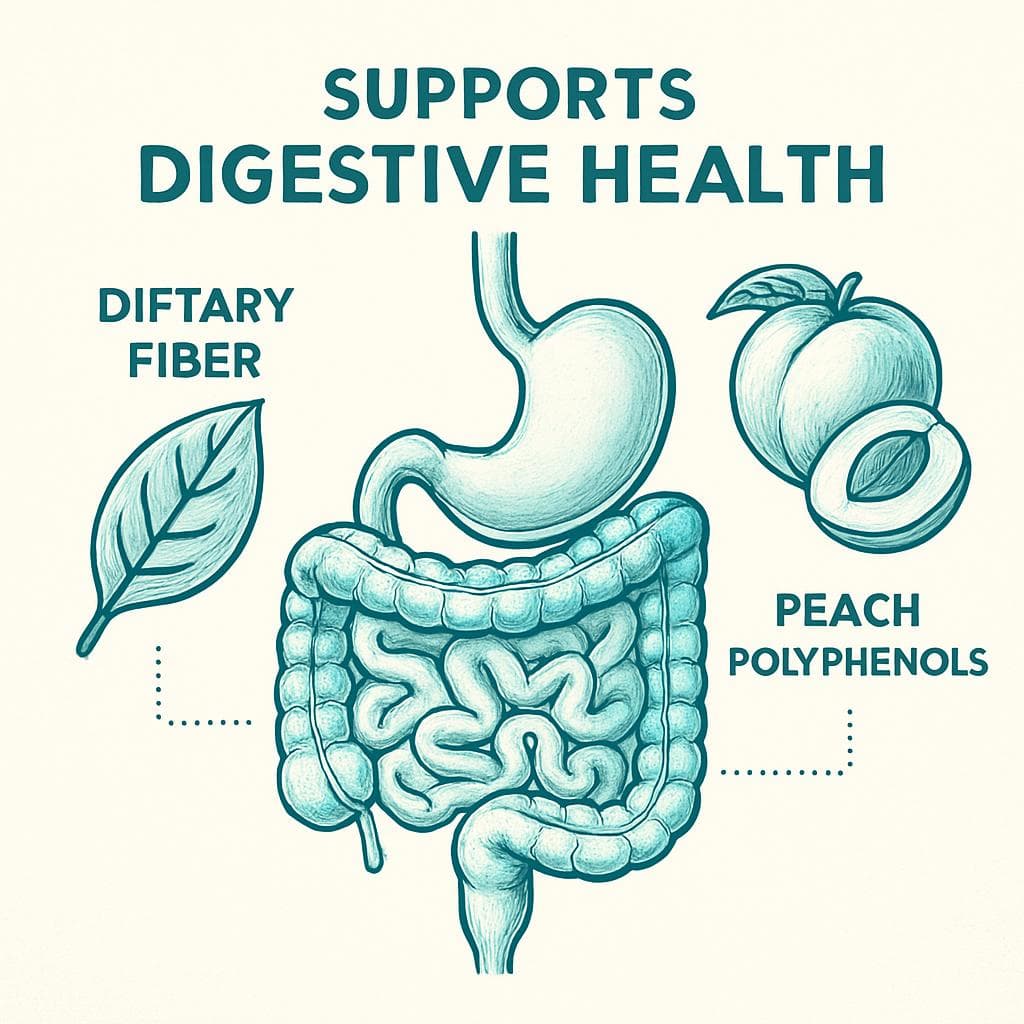
Peaches contain both soluble and insoluble fiber, which helps promote smooth digestion and regular bowel movements. Soluble fiber absorbs water to form a gel that softens stool, while insoluble fiber adds bulk to aid intestinal transit. Together, they help reduce occasional constipation and support gut comfort.
Beyond fiber, peaches are rich in polyphenols — plant compounds that support beneficial gut bacteria and protect intestinal cells from oxidative stress.
A review in the National Library of Medicine (PMC, 2021) noted that phenolic compounds in peaches may enhance microbial diversity and intestinal antioxidant defenses. Regular inclusion of peaches in your diet may therefore help maintain a balanced and healthy gut environment.
2. Promotes Heart Health

The potassium, fiber, and antioxidant compounds in peaches may help support overall cardiovascular wellness by contributing to balanced cholesterol and healthy blood pressure levels. Potassium helps counteract sodium’s effect on blood pressure and supports normal heart rhythm, while dietary fiber binds cholesterol in the digestive tract, helping reduce LDL (“bad”) cholesterol and support arterial health.
A 2015 study published in the journal Food Research International found that phenolic extracts from peaches and plums exhibited strong antioxidant and lipid-lowering activity in laboratory models, suggesting potential cardioprotective effects. Although more human trials are needed, these findings are consistent with the American Heart Association’s dietary recommendations that emphasize consuming fiber-rich fruits and vegetables daily to improve cholesterol profiles and reduce heart disease risk.
Because peaches are naturally low in sodium, saturated fat, and cholesterol, they align well with both the Mediterranean and DASH (Dietary Approaches to Stop Hypertension) eating patterns — two heart-healthy diets endorsed by the American Heart Association for long-term cardiovascular support.
3. May Help Support Blood Sugar Balance
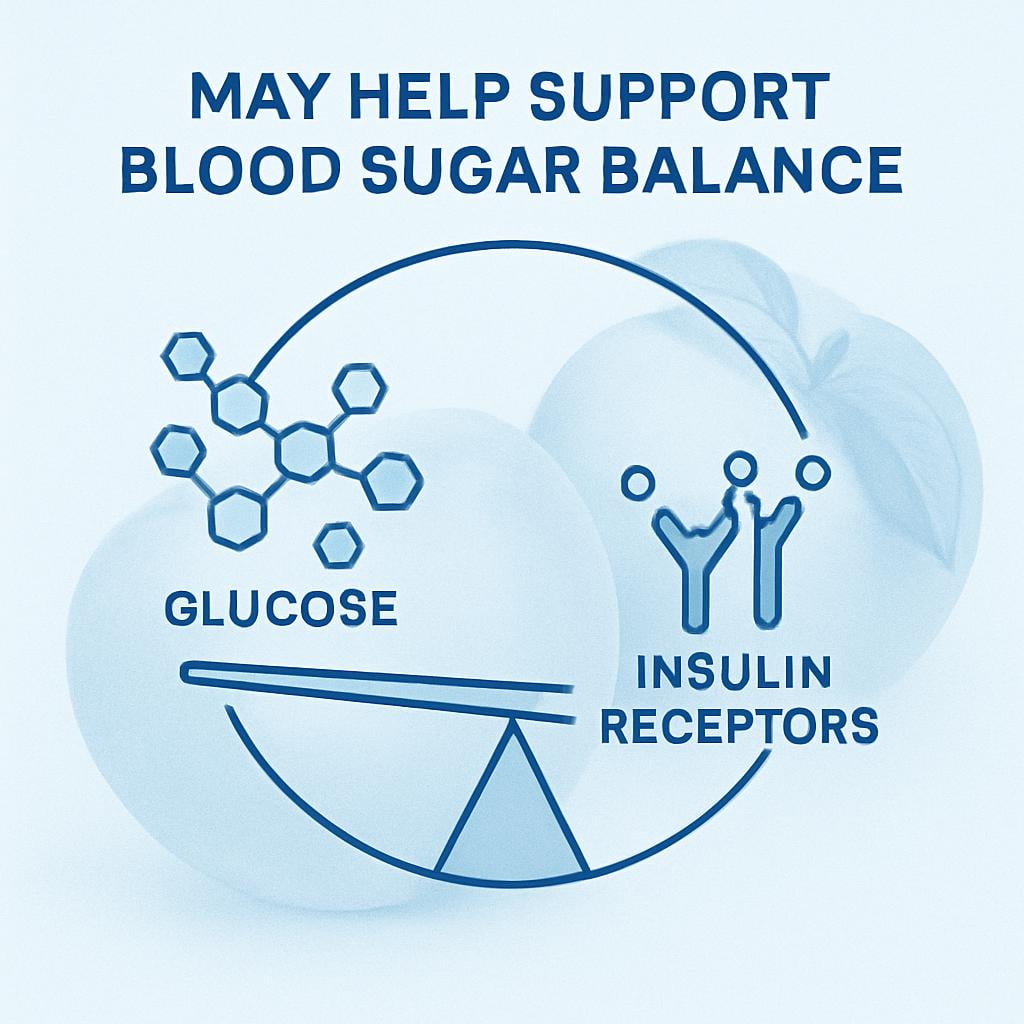
Peaches have a low glycemic index (GI ≈ 42), meaning they produce a slower and more gradual rise in blood glucose than refined carbohydrates. This makes them a smart, naturally sweet option for people seeking better blood-sugar control or overall metabolic balance.
Their combination of dietary fiber and plant polyphenols may help support insulin sensitivity and healthy glucose metabolism. Fiber slows the digestion and absorption of sugars, while antioxidants such as chlorogenic acid and catechins found in peaches may reduce oxidative stress that contributes to insulin resistance.
A study published in Food & Function (Royal Society of Chemistry, 2016) demonstrated that phenolic extracts from peaches and plums activated antioxidant pathways and improved glucose regulation in animal models. Although additional human studies are needed, these findings align with dietary guidance from the American Diabetes Association, which encourages the inclusion of fiber-rich, low-glycemic fruits—such as peaches—as part of a balanced meal plan.
For practical use, replacing processed desserts with fresh peaches or adding sliced peaches to yogurt, oats, or salads can help satisfy sweet cravings while supporting steady energy levels and metabolic wellness.
4. Rich in Antioxidants
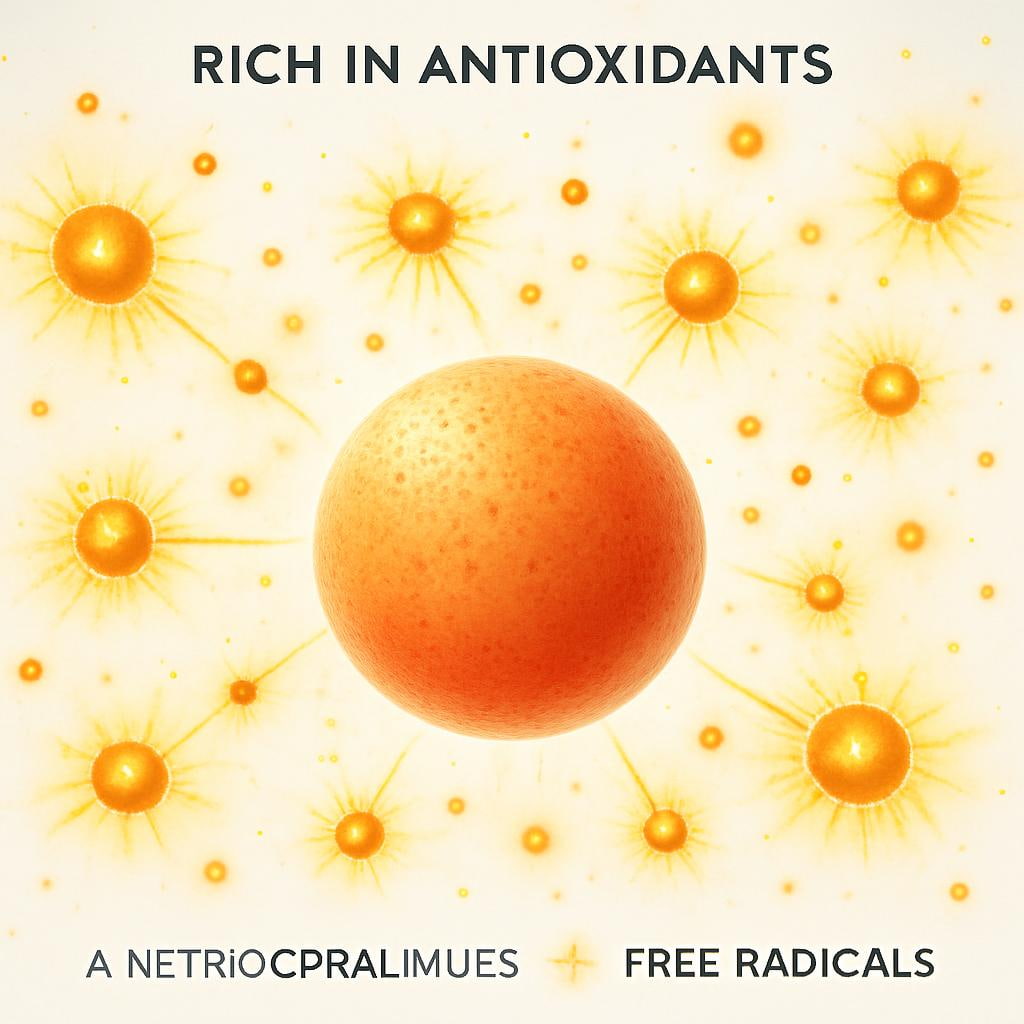
Peaches are naturally rich in antioxidants, including vitamin C, chlorogenic acid, catechins, and anthocyanins — compounds that may help neutralize free radicals, the unstable molecules that contribute to oxidative stress and cellular aging. These antioxidants play a key role in protecting cells from environmental and metabolic damage, supporting skin vitality, immune resilience, and long-term wellness.
Most of these beneficial compounds are concentrated in the peach skin, so eating the fruit unpeeled (after thorough washing) helps maximize antioxidant intake.
A 2023 study published in Frontiers in Nutrition found that phenolic compounds from peaches exhibit strong antioxidant and anti-inflammatory activity, reinforcing their role in maintaining the body’s oxidative balance and cellular health. These findings align with guidance from the Harvard T.H. Chan School of Public Health emphasizing that fruit-based antioxidants contribute to overall health and disease-risk reduction when consumed as part of a balanced diet.
Including peaches regularly — alongside other colorful fruits like berries, plums, and citrus — provides a wide spectrum of plant antioxidants that support tissue repair, skin protection, and healthy aging.
5. Supports Skin Health and Hydration
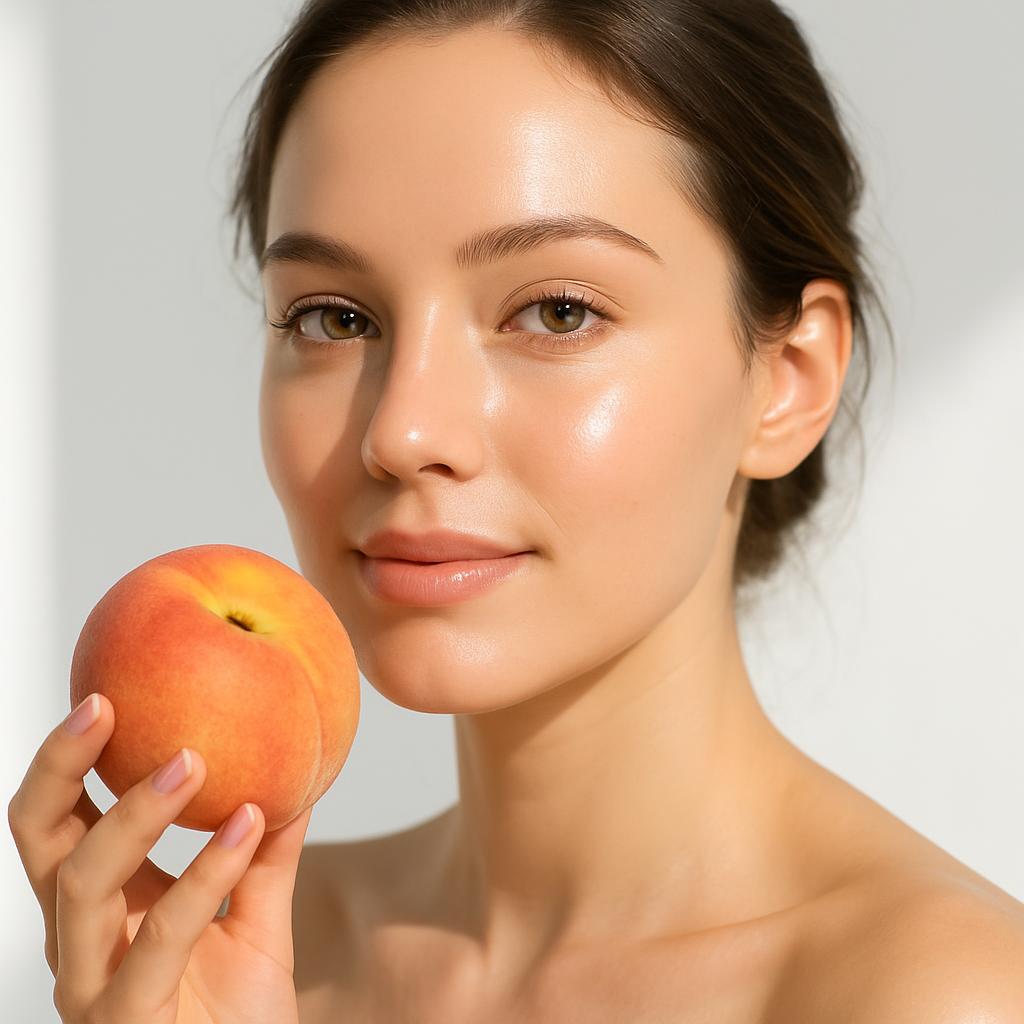
Peaches contain vitamin C, carotenoids, and polyphenols, all of which play roles in maintaining skin hydration and elasticity. Vitamin C supports collagen formation — the structural protein responsible for firm, youthful-looking skin — while carotenoids and flavonoids may help protect against UV-induced oxidative stress.
According to research in Nutrients (2022), vitamin C-rich foods like peaches support skin moisture retention and may help reduce signs of premature aging. Eating peaches regularly as part of a nutrient-dense diet may therefore contribute to glowing, healthy skin from within.
6. May Aid in Weight Management

Peaches are naturally low in calories (≈ 74 kcal per medium fruit) and high in water (≈ 89%), making them an ideal snack for supporting healthy weight goals. The fiber content promotes satiety, helping you feel fuller for longer and reducing the temptation to overeat.
Their natural sweetness satisfies sugar cravings without adding processed sugars, which can make them a useful replacement for sugary desserts or beverages. Combined with balanced meals, peaches can help manage overall calorie intake while keeping hydration levels high.
7. Supports Immune Function

Peaches provide a combination of vitamin C, polyphenols, and carotenoids that may help strengthen immune defenses. Vitamin C plays a critical role in supporting white blood cell production and protecting cells against oxidative stress caused by infections.
Research summarized by the National Institutes of Health Office of Dietary Supplements (NIH ODS) confirms that adequate vitamin C intake supports both innate and adaptive immunity. Consuming peaches alongside other vitamin C-rich foods like citrus or bell peppers can help optimize daily immune support.
8. May Support Eye Health
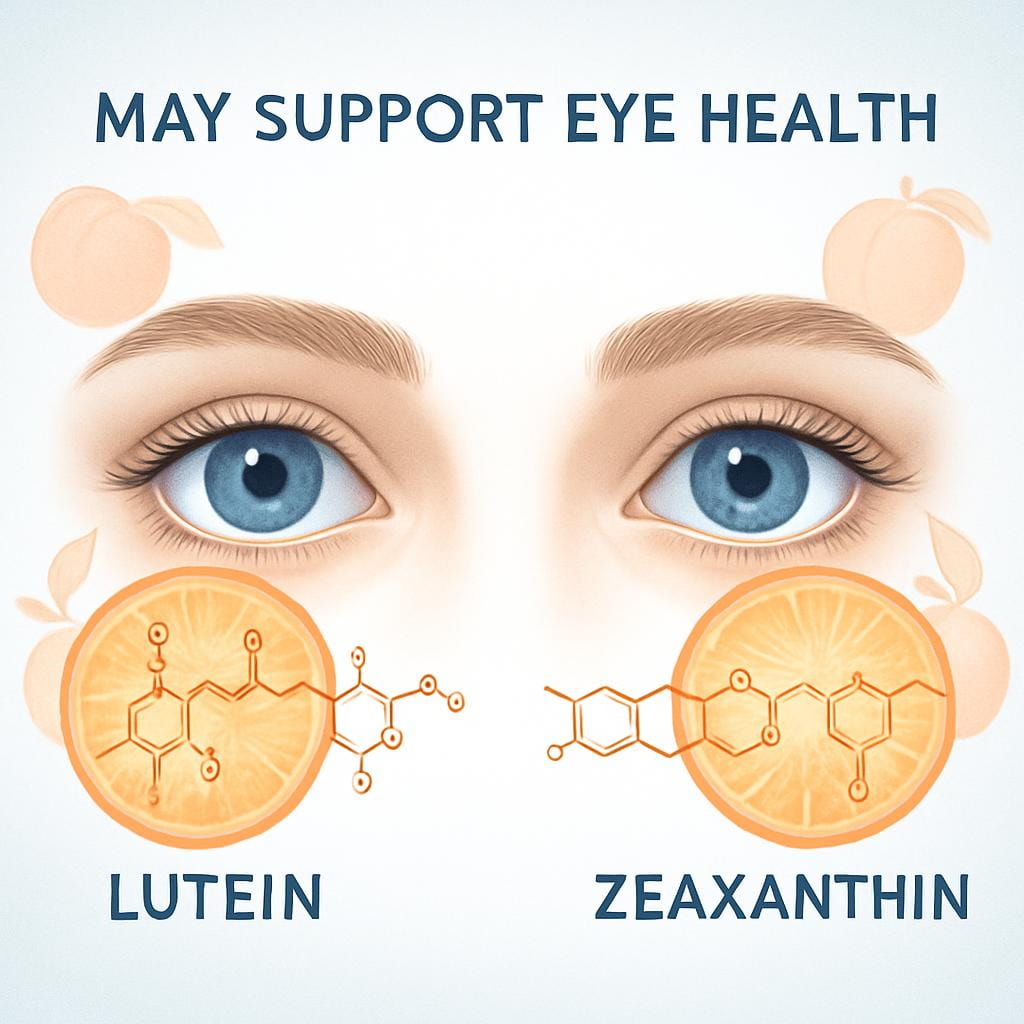
Peaches are a natural source of beta-carotene, lutein, and zeaxanthin, carotenoid antioxidants that may support long-term eye health. These nutrients help protect the retina from oxidative damage and filter harmful blue light, which contributes to age-related vision decline.
The American Academy of Ophthalmology notes that diets rich in these carotenoids are linked to a lower risk of macular degeneration and cataract formation. Including peaches regularly — along with leafy greens and orange-hued produce — may therefore help maintain sharp vision as you age.
9. May Support Healthy Pregnancy

Peaches provide vitamin C, potassium, and a small amount of folate — nutrients that contribute to maternal wellness and healthy fetal development when consumed as part of a balanced prenatal diet.
- Folate supports the early development of the baby’s brain and spinal cord. However, peaches contain only a modest amount (about 4 µg per 100 g). The Centers for Disease Control and Prevention (CDC) advises all women of reproductive age to obtain 400 µg of folic acid daily from supplements or fortified foods in addition to natural food sources.
- Potassium helps regulate muscle contractions, nerve function, and fluid balance, all of which become increasingly important as blood volume rises during pregnancy.
- Vitamin C supports immune defense and enhances the absorption of non-heme iron from plant-based foods, which can help reduce the risk of iron-deficiency anemia.
According to the American College of Obstetricians and Gynecologists (ACOG), fresh fruits like peaches are safe and beneficial when properly washed under running water and included in a nutrient-rich prenatal eating plan. The U.S. Food and Drug Administration (FDA) further recommends rinsing all fresh produce to remove soil and surface residues before eating.
Because peaches are naturally low in sodium, fat, and cholesterol and provide hydration and fiber, they make a wholesome, refreshing snack choice for expectant mothers. Always consult a qualified healthcare professional or registered dietitian for personalized pregnancy nutrition guidance.
10. Contributes to Overall Wellness
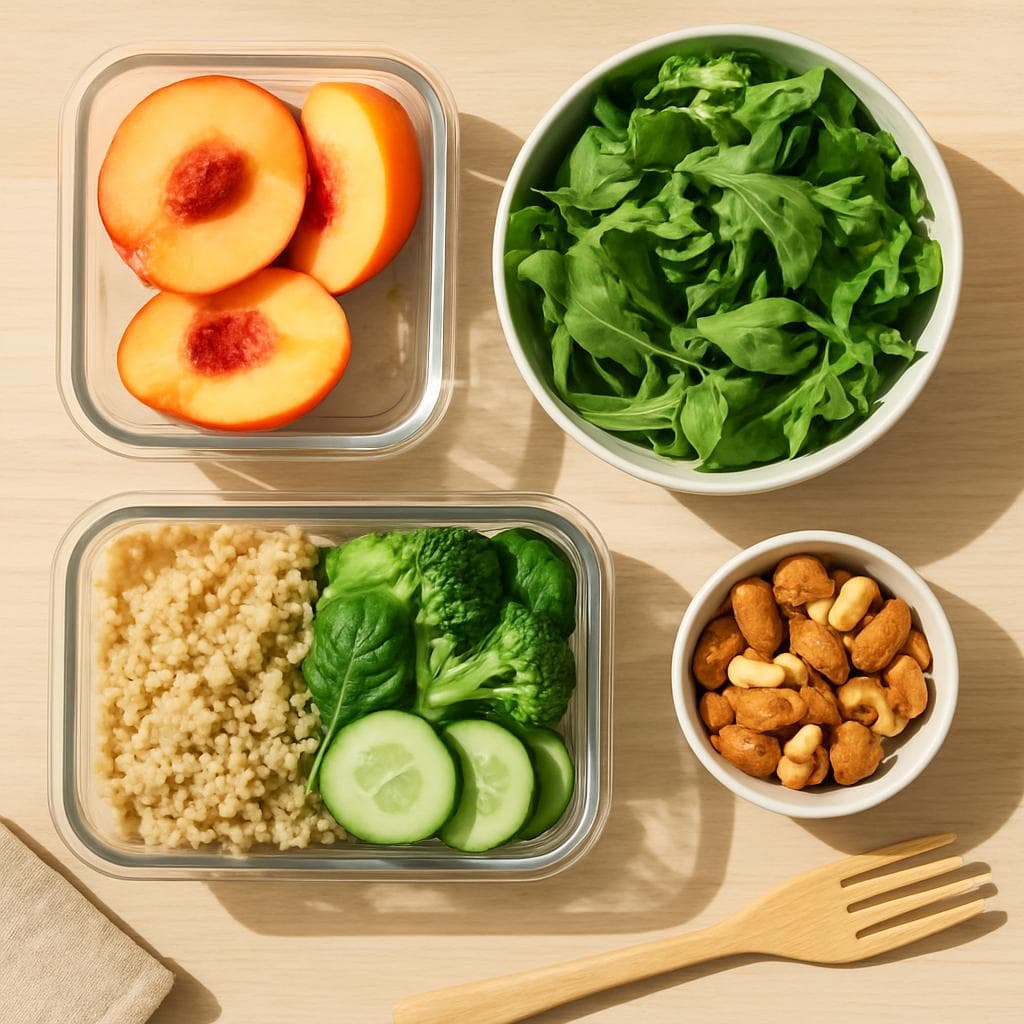
Peaches combine hydration, fiber, vitamins, and antioxidants to support whole-body wellness. Their diverse nutrient profile contributes to better digestion, metabolic balance, and antioxidant protection.
As part of a balanced diet rich in fruits, vegetables, whole grains, and lean proteins, peaches may help maintain healthy energy levels, skin radiance, and long-term vitality. Including them in smoothies, salads, or snacks offers a simple and refreshing way to support your overall well-being year-round.
How to Eat Peaches for Maximum Benefits
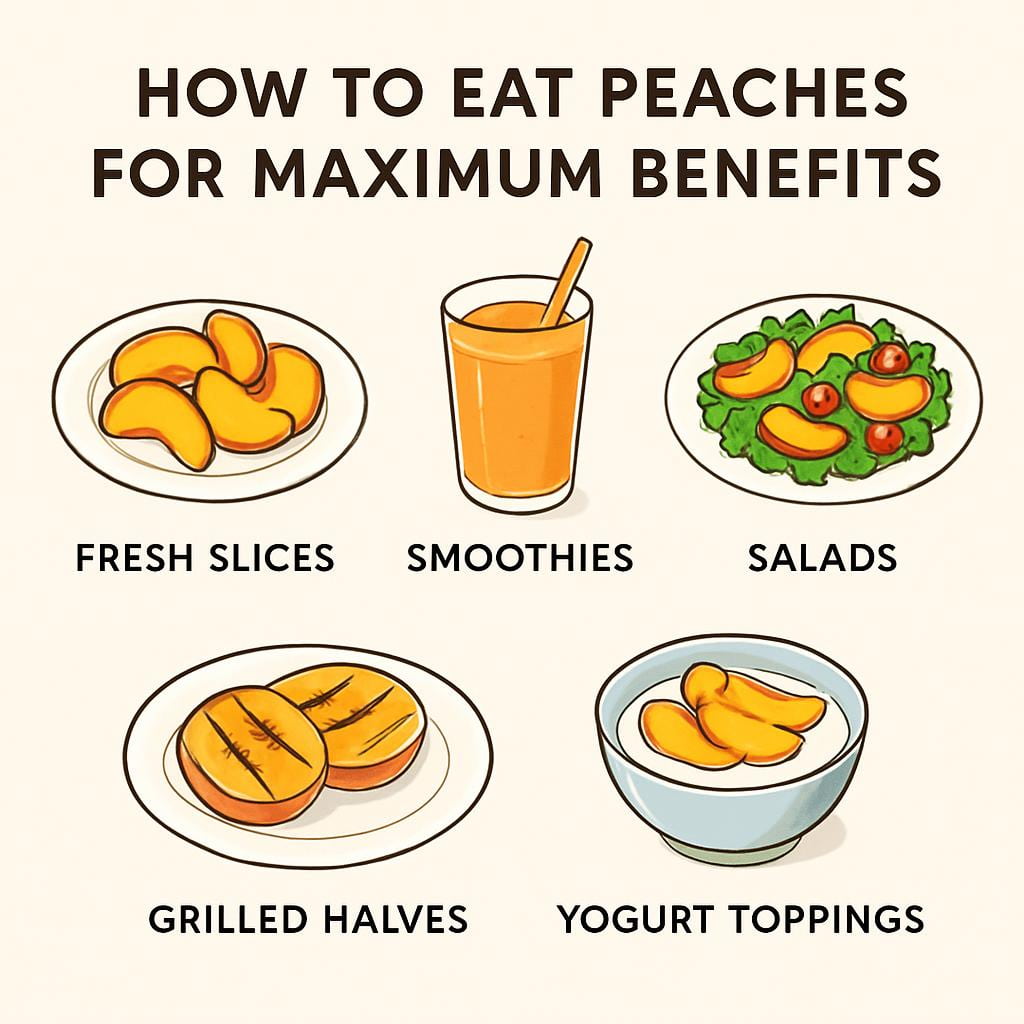
Peaches are naturally versatile and can be enjoyed in many nutritious, safe ways. Eating them fresh and unpeeled (after thorough washing) provides the highest levels of fiber and antioxidants, particularly in the skin.
Practical ways to enjoy peaches:
- Fresh snacks: Slice and eat plain or sprinkle with cinnamon for a light, hydrating treat.
- Smoothies: Blend with Greek yogurt, banana, and oats for a fiber-rich breakfast.
- Salads: Pair diced peaches with spinach, feta, and walnuts for a sweet-savory contrast.
- Grilled: Lightly grill halved peaches and drizzle with honey or balsamic for a healthy dessert.
- Baked or roasted: Use as a natural sweetener in oatmeal, muffins, or fruit crisps.
- Frozen or canned: Opt for those packed in 100 % fruit juice or water, not heavy syrup, to avoid added sugars.
Combining peaches with protein and healthy fats (like yogurt, chia seeds, or nuts) helps balance blood sugar and enhances nutrient absorption — a practical step toward YMYL-compliant, balanced nutrition.
Possible Side Effects and Precautions (Safety & Allergy Information)
While peaches are generally safe, nutritious, and well-tolerated, a few safety and allergy considerations should be noted to ensure responsible consumption.
1. Allergy Sensitivity (Oral Allergy Syndrome)
Individuals allergic to birch pollen may experience oral allergy syndrome (OAS) — a mild allergic reaction causing itching or tingling in the mouth and throat after eating raw peaches.
According to the American Academy of Allergy, Asthma & Immunology (AAAAI), this occurs because certain proteins in peaches resemble those found in birch pollen. Peeling or cooking peaches often denatures these proteins and helps minimize symptoms.
2. Pesticide Residues
Peaches are frequently listed on the U.S. Department of Agriculture (USDA) Pesticide Data Program as among the fruits most likely to carry pesticide residues when not properly washed.
To reduce potential exposure:
3. Digestive Sensitivity
Peaches contain natural sugars — fructose and sorbitol — which may cause bloating or mild gas in sensitive individuals, especially when eaten in large amounts. Moderation is key: about one medium peach (≈150 g) per serving provides nutritional benefits without discomfort.
4. Canned and Processed Peaches
Canned peaches can be a convenient option, but it’s best to choose varieties packed in water or 100% fruit juice instead of syrup to avoid excess added sugars. Always read the ingredient label to verify there are no artificial preservatives or sweeteners.
By following these safety and allergy precautions, consumers can enjoy peaches as a healthy, low-fat, nutrient-dense fruit that supports overall wellness while minimizing potential sensitivities or exposure risks.
Storage and Food Safety Tips
Proper storage and safe handling help preserve peaches’ nutritional quality, flavor, and food safety. According to the U.S. Food and Drug Administration (FDA), all fresh fruits should be washed, stored, and refrigerated properly to minimize contamination and maintain freshness.
Follow these food-safe storage practices:
- Before eating: Rinse whole peaches thoroughly under running water — do not use soap, bleach, or detergents. Dry with a clean towel before slicing.
- Ripening: Keep firm peaches at room temperature (65–75 °F / 18–24 °C) until they yield slightly to gentle pressure.
- After ripening: Refrigerate ripe peaches at ≤ 40 °F (4 °C) to slow spoilage and preserve nutrients for up to 3–4 days.
- Cut peaches: Store slices in airtight glass containers or covered bowls to prevent oxidation and moisture loss.
- Avoid cross-contamination: Keep peaches separate from raw meat, poultry, seafood, and their juices in the refrigerator.
- Freezing: Slice, remove pits, and freeze in sealed, labeled freezer bags for 6–8 months to retain flavor, color, and nutrients.
These FDA-endorsed handling guidelines help protect against foodborne pathogens while maintaining the fruit’s taste and nutritional integrity — ensuring your peaches remain fresh, safe, and ready to eat.
FAQ — Peaches and Your Health
1. Are peaches good for diabetics?
Yes — peaches have a low glycemic index (≈ 42) and contain fiber that helps slow sugar absorption, supporting balanced blood glucose when eaten in moderation.
2. Can pregnant women eat peaches?
Yes. Peaches are safe and provide vitamin C, folate, and potassium, nutrients essential for fetal development and maternal hydration. Always wash thoroughly before eating.
3. Are canned peaches healthy?
They can be — if packed in 100 % juice or water. Avoid those in syrup, which add unnecessary sugars.
4. Do peaches help with skin glow?
Peaches supply vitamin C and carotenoids that support collagen formation and protect against oxidative stress, contributing to healthy-looking skin.
5. How many peaches should I eat a day?
One medium peach (about 150 g) provides fiber, vitamins, and antioxidants without excessive natural sugar — a balanced daily serving for most adults.
6. Is it safe to eat peach skin?
Yes, the skin contains most antioxidants and fiber. Wash well to remove residues or choose organic peaches when possible.
7. Can peaches cause allergies?
People with birch pollen allergy may react to raw peaches. If this occurs, peel or cook the fruit before eating and consult an allergist if symptoms persist.
Conclusion
Peaches are nutrient-rich fruits that support digestion, heart function, immunity, and skin health while providing hydration and natural sweetness. Including fresh peaches regularly in a balanced diet is an easy, delicious way to enhance overall wellness.
This content is for informational purposes only and not medical advice.
References
- USDA FoodData Central (2024) — Peaches, Raw
- Frontiers in Nutrition (2023) — Phenolic Compounds and Antioxidant Activity of Peaches
- American Academy of Allergy, Asthma & Immunology (AAAAI) — Oral Allergy Syndrome
- American College of Obstetricians and Gynecologists (ACOG) — Nutrition During Pregnancy
- American Academy of Ophthalmology (AAO) — Diet, Nutrition & Eye Health
